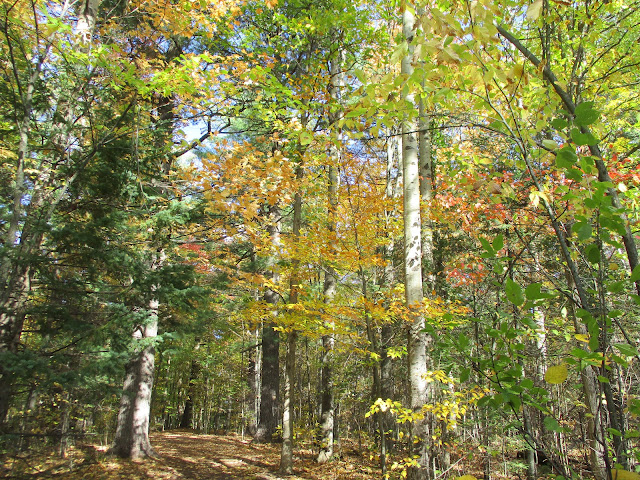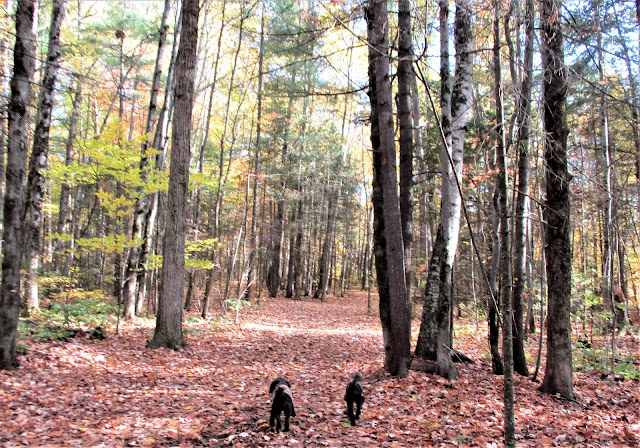It is truly staggering the amount of packaging we meticulously gather week after week, in our households, packing it into our blue-box for trash collection bi-weekly, in the belief that the plastics and tins and glass are all to be separated and recycled. There, we've done our thing for the environment. It has become a devoted, almost-religiously-motivated feel-good ritual, even though we deplore the excess packaging. It's the way things are done. Food is packaged.
There's plastic egg containers, juice and milk containers, plastic fruit cartons and boxes, liquid soap, laundry soap and softener, drink tins, vinegar bottles, it's endless, the array of discarded plastic and tin objects goes on and on... In the interests of convenience, but above all, for cleanliness and safety reasons food and drink are packaged securely so no nasty pathogens will graduate to our inner sanctorums, our vulnerable bodies.
There's a distinct cost to all of this of course and I don't mean the cost added in manufacturing and distributing in using these containers and packages, but the cost to ensure that it doesn't end up scattered within the landscape, but is securely handled and disposed of. Recycling, the rally cry of the day. And there! we've done our duty, meticulously washing out the containers, placing them out for pick-up.
Except for one little problem that perhaps isn't so little, after all. The food scraps and waste we collect in the green compost bins collected weekly certainly are recycled to become compost, a wonderful growing medium to be used on fields and in gardens as natural fertilizer, rather than ending up in a garbage dump. Good news, since municipal dumps are being stressed to their limits. The black paper-collection boxes get filled with old newspapers and are collected bi-weekly as well, and they too are recycled. There, we've looked after everything. No garbage, at least very little of it.
We have a habit of reading the day's newspapers while having breakfast. Not sure how good that is for healthy digestion come to think of it, with so much bad news waiting to jump out at us unwary news-gobblers, but there it is, another habit. This morning an article placed recycling in a perspective that is quite simply enraging. All the plastic that we collect, along with glass bottles and tin cans, well, they're destined not for recycling necessarily, but, unfortunately for those overworked dumps. A mere 9 percent of the plastic gets recycled for reuse.
Can't we do better? And why not? There exists, evidently, nation-wide a mere ten recycling plants. There's no profit in it, it seems. A scheme to research the possibility of burning unwanted waste products to produce energy appears not to have reached success. It's too difficult and costly to recycle some types of plastic to make it worthwhile. Stop producing that type of plastic. If we switch from plastic to more use of paper products, while it's theoretically a renewable resource, we're also cutting down more trees. To convey groceries from supermarket to home. Headache-inducing.
To then clear our heads and avoid a splitting headache we headed out to the ravine for our daily ramble through the woods with Jackie and Jillie. It's been so wet and mud-filled in there, despite the covering of fallen leaves that it takes forever to wash their little paws once we get back home. Not today. Today it was good and dry, the landscape finally absorbing all the rain that fell this week, and the rampant wind gusts of yesterday helped, but also brought down more leaves to cover the mud.
A sunny day, but cooler. Yesterday's wind blasts had brought down quite a bit of foliage, but nothing too dramatic; here and there boughs of long-dead vintage, finally nudged down from their stubborn perches. We're seriously flirting these nights with frost, as we will be again tonight and the night after. And we can see not only in our gardens the results of the cold-nipped foliage, but the vegetation in the ravine formerly known as fall wildflowers give ample evidence that winter is gaining.
In the meanwhile, there is still plenty of green on the forest canopy, the leaf mass not yet close to even a partially diminished state. Sheltering us from rain when we're caught out, and providing a comfortable habitat for birds. Lots of nuthatches and chickadees around, as well as robins. Today we saw a pair of doves. Previously we'd seen a sole dove, and it's always sad to see a single dove. They mate for life, and if something happens to a pair, that one dies, the other is desolate and disconsolate with crushing loneliness.
A condition that affects us all.









No comments:
Post a Comment